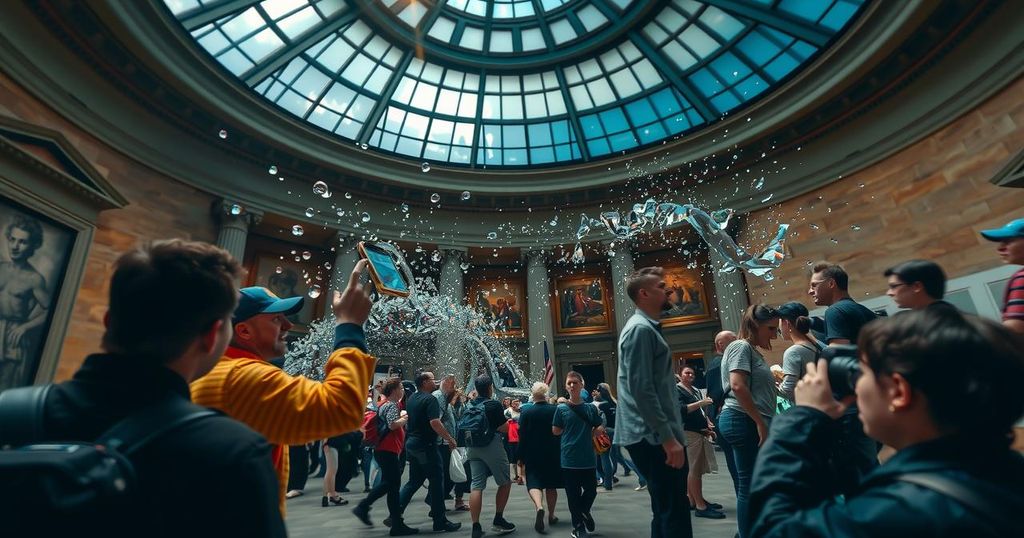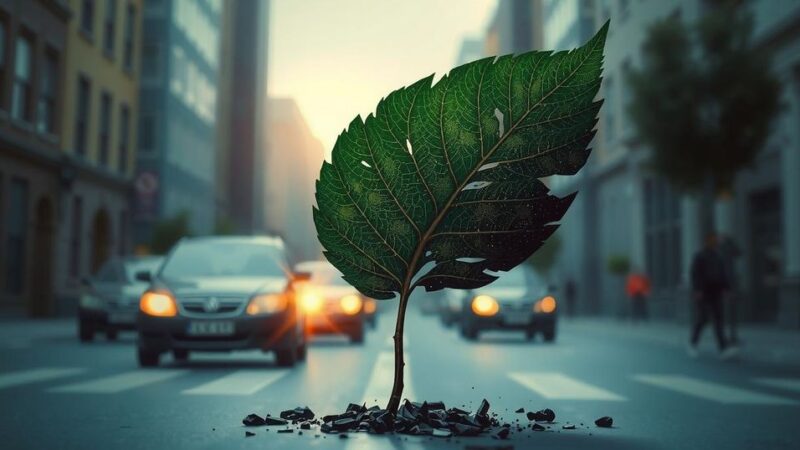The National Gallery in London has banned liquids in response to recent attacks by climate activists on artwork. The gallery seeks to protect its irreplaceable collection after several incidents of vandalism, including damage to Van Gogh’s “Sunflowers.” The National Museum Directors’ Council has called for an end to such protests, emphasizing the need for museums to remain safe spaces. Activist group Just Stop Oil maintains that their actions, though disruptive, are meant to highlight urgent climate issues.
In response to a series of activist-driven attacks on iconic artworks, the National Gallery in London has instituted a ban on liquids and several additional security initiatives. The gallery has expressed concern for the preservation of its collection, stating, “The collection we hold is irreplaceable, and with each attack, we have been forced to consider putting more barriers between the people and their artworks to preserve these fragile objects for future generations.” This decision, effective immediately, prohibits all liquids, including bottled water, although complimentary tap water remains available to visitors within the museum. Recently, climate activists have targeted renowned art pieces globally as part of their protest efforts, with incidents involving vandalism of such masterpieces as the Mona Lisa in Paris and a historic Claude Monet painting in Germany. Among the incidents that have drawn attention in the United Kingdom, demonstrators from Just Stop Oil threw tomato soup on Vincent van Gogh’s “Sunflowers” last year, resulting in significant damage to the artwork’s frame, valued at approximately $13,400. The increasing frequency of these attacks, with five recorded incidents at the National Gallery since July 2022, has caused pronounced distress among both visitors and staff. An open letter released by the National Museum Directors’ Council on October 11 articulated the collective call to cease such demonstrations, as they negatively impact the reputation of UK museums and create an atmosphere of unease. The council emphasized the necessity for museums to remain sanctuaries of culture. In response to the heightened security measures, Just Stop Oil issued a statement highlighting the broader implications of their actions, urging for an urgent discussion concerning climate change. They assert that their protests, although disruptive on a small scale, aim to draw attention to far more critical global crises such as famine and war that result from governmental inaction on environmental issues.
The rise of climate activism has seen various groups employing controversial methods to draw attention to pressing environmental issues. Protests have increasingly targeted cultural institutions, leading to significant public discourse on both the urgency of climate action and the rights of individuals to protest. The National Gallery’s decision to ban liquids is a direct reaction to the escalating trend of attacks, which have included throwing food substances at artworks. These protests, while aimed at raising awareness, have introduced complex dynamics regarding the safety and sanctity of cultural heritage in the face of civic unrest.
In conclusion, the National Gallery’s decision to impose a ban on liquids follows a pattern of increasingly bold climate activist actions targeting famous artworks. This response reflects a heightened commitment to protecting cultural treasures from potential damage while also acknowledging the concerning impact of such protests on public perception. As discussions around the balance between activism and cultural preservation evolve, the art community remains on the front lines of debate regarding the role of museums in responding to societal issues.
Original Source: www.washingtonpost.com






